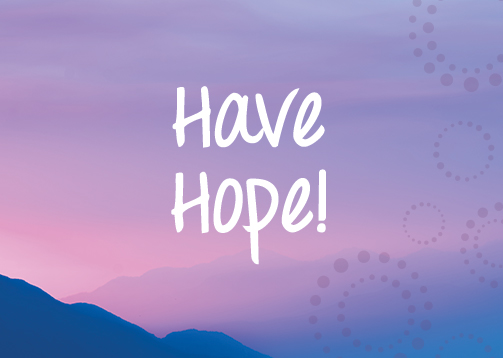March 2, 2018
My Year of Waking Up – Series: Part 5 of 5

My Year of Waking Up: “Have Hope”
The final piece in this reflective series on my recent learning about individual and institutional racism, about the difference between equality and equity, and about myself, is dedicated to hope. As I mentioned at the start of this series, Bryan Stevenson, author of “Just Mercy” urged us to do four things in our desire and effort to build a just and equitable world for all, the last of which was to have hope.
During Stevenson’s post-election visit to Seattle, you can imagine that many in the audience were feeling uncertain and unhopeful. The white supremacy, violence and hate we have witnessed over this past year have further challenged our sense of hope. Bryan Stevenson strongly suggested that hopelessness is not an option. He said it is critical that we must always have hope and believe that together, we can create the world we want to live in. He went even further to say that “when you become hopeless, you become part of the problem, as hopelessness is the enemy of justice”. We must have hope.
So, how do I feel hopeful, especially as I wake up a little more each day to the gross injustice and inequality, experienced by my neighbors, co-workers and friends? Most of all, I stay hopeful through the increasing number of people I witness seeking to learn more, to listen for understanding, and to venture slowly into uncomfortable – dialogue changing – conversation.
In December I had the opportunity to participate in a two day training called “Undoing Institutional Racism”, hosted by the People’s Institute Northwest. The training was overbooked. So, 55 or more of us sat shoulder to shoulder in a chilly church social hall for two full days of learning that exposed the deep history of racism in our country, built on white privilege and supremacy. We were engaged in different ways to explore our individual and collective understanding of race based oppression and inequity.
In one exercise, we were each asked to state our primary race identification (Black, White, Asian, Native American, Hispanic), and to say what we liked most about “being White, or Black…”. I struggled to think of what to say, because I had never thought about being White, and when it was my turn to answer to the group, I said “I’m not sure, maybe because it’s easy…?” My response of ease, along with “I’ve never thought about it”, were the most common response from White participants.
Clearly, it’s a privilege not to consider your race when walking through life — when applying for a job, traveling to different parts of the country, shopping, looking for a new place to live, driving over the speed limit or walking home in the dark. Interestingly, most non-white participants reported that they “liked” being strong, facing adversity, being resilient, they also reported being very proud of their cultural traditions, cuisine and creative abilities. In essence, people of color report that what they like about themselves is that they are capable of coping with adversity and oppression. This simple, learning-in-public exercise was hard, and revealing, and I think it left each of us a little more awake, it certainly did me. It felt hopeful to see this large group of people show up and actively participate in two days of powerful, albeit uncomfortable awakening.
Day to day, I find the most hope close to home, at WithinReach. I work with people who are committed to health equity, to equity in general. As a team we want to understand why such significant inequities exist for Washington communities of color, and what our role is in creating more equitable health outcomes for all families in our state. The top priority in our 2017-2019 Strategic Framework is dedicated to: Improving overall health and health equity in Washington. We don’t know the perfect path forward in pursuit of this goal, but we are committed to reducing our individual and organizational bias, and to creating a plan to move every part of our work toward equity. Most of all, we are listening more deeply in our effort to create a different dialogue.
So, where does this leave me? Above all, grateful for each of the learning experiences I had this past year and the awakenings they offered me. I cannot say I am fully woke, but rather ready to keep ‘waking up’. Bias, racism and inequity are not new, but the need to understand and address them is more critical than ever to our survival. Black Lives Matter. Hate has No Home Here. And, I hope to be more awake each day.



